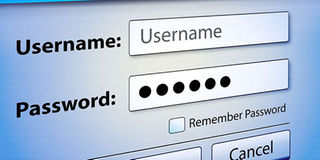How to protect passwords from hackers

Cybercriminals often use automated tools to guess passwords. PHOTO | FILE | NATION MEDIA GROUP
What you need to know:
- Long and complicated passwords are however hard to break, even with automated tech tools. To create longer, complex passwords, use a phrase, a saying or sentence as your password.
- Don’t use one password for multiple accounts. Change your passwords regularly. Also, use hard-to-guess passwords.
What’s in your password? How many characters is your password made of? Does it have letters, numbers and special characters or is it just a word? Do you use the same password across multiple online accounts?
If your password is your birthdate or that of your child, the name of your pet or of your vaunted sports team, then you are giving cybercriminals a carte blanche; an easy path to crack your password code and take over your online accounts.
Our online life is inseparably connected to our offline life. Millions of internet users however don’t ring-fence their online assets. Little wonder that complaints about compromised online accounts are piling up.
PASSWORD MANAGER
One more pain about passwords: It is impossible to remember different passwords for different accounts.
Therefore, most people go the easy way — they use one password for all their accounts. That means if one account is cracked, it opens doors to all others.
One option to deal with the problem of many passwords is to use a password manager. A password manager is a software application that you can download on your phone or computer and use it to generate strong passwords for your accounts.
A password manager is like a safe for keeping passwords. It keeps and retrieves passwords for all your digital accounts.
The application stores the passwords in an encrypted database such that no one can access or use them. Manufacturers of smart devices have started the wave of the future.
SECURE LOCK
They have introduced biometric security. That is, the ability to use fingerprints or facial features or the iris of the eye to open devices and applications.
Whereas this technology is still undergoing improvements, it provides stronger security than passwords. Cybercriminals often use automated tools to guess passwords.
Long and complicated passwords are however hard to break, even with automated tech tools. To create longer, complex passwords, use a phrase, a saying or sentence as your password.
Preferably, mix lower and upper cases and include numbers on your password. Also, remember that the internet is awash with malware — a software that exploits computer security flaws.
A malware stealthily takes control of your computer and then hands the control to a human being with ill-intention.
MALWARE
Once a malware infiltrates your computer system, it can enable another person to read your emails, see your online bank transactions and trail your movements online.
It can even turn on the camera and the mic on your laptop and record everything you do. The point is, if your computer is not well-protected and you use a porous password as your line of defence, your security is severely compromised.
Here is the parting thought. Don’t use one password for multiple accounts. Change your passwords regularly. Also, use hard-to-guess passwords.
Mr Wambugu is an informatician. Email:[email protected] @samwambugu2





